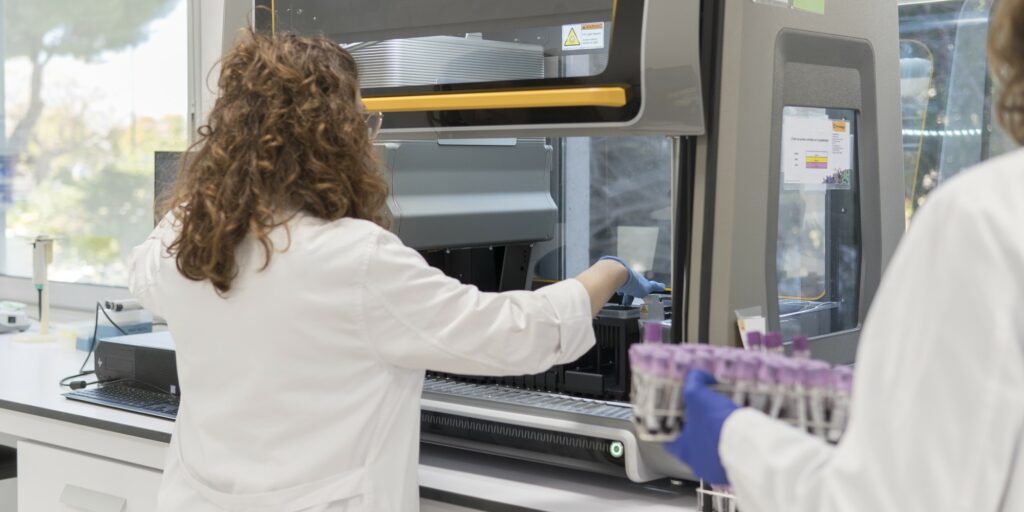The Neurological Diseases and Neurogenetics group of the Bellvitge Biomedical Research Institute (IDIBELL), members of the Epilepsy and Clinical Genetics Units of the Bellvitge University Hospital (HUB), have developed multidisciplinary genetic studies to identify the cause of epilepsy. Research of this type is essential, as it is estimated that up to 30% of those affected do not know the origin of their epilepsy. This greatly complicates the design of therapeutic approaches that can benefit patients, especially since there are many different causes of this neurological disorder.
As Dr. Mercè Falip, researcher of the Neurological Diseases and Neurogenetics group of IDIBELL and coordinator of the Epilepsy Unit of the HUB, points out, “epilepsy is not a disease, but a symptom that can correspond to many diseases”. “It can be initiated by many different causes with a lesion in the cortex, the outer part of the brain, as a common feature: a head injury, a tumour, a problem at birth, encephalitis or degenerative diseases such as Alzheimer’s, among others”. However, apart from these rather structural causes, epilepsy can also have an immunological basis (due to defects in the immune system, which attacks the individual) or a genetic basis. Precisely, these gene panel studies have focused on discovering the causes of the latter type of epilepsy.
To this end, during 2023, gene panel studies were carried out in which mutations specifically related to epilepsy and epileptic encephalopathy were identified. Thus, these studies have succeeded in determining the genetic cause of epilepsy in 28% more patients, who now have a definitive diagnosis. “There are people who, before these tests, had not known the origin of their epilepsy for more than a decade,” says Dr Falip. She adds that “the benefits of finding the disease that causes the disorder not only affect the patient themselves, but also extend to their immediate family, who often already receive medical follow-up”. In addition, identifying genetic causes of epilepsy is of great importance, as it could be applied in prenatal screening programmes to facilitate pregnancy and to be able to predict the disorder in advance.
Genetics is increasingly becoming an essential pillar in the diagnosis of various diseases and disorders such as epilepsy. “Genetic counselling, through multidisciplinary collaboration, has great potential and at Bellvitge University Hospital we are already seeing the excellent results it brings,” says Anna Esteve, genetic counsellor and coordinator of the Clinical Genetics Unit of the HUB. Particularly relevant is the work of the multidisciplinary committees made up of specialists from her unit and the Epilepsy Unit, who work together to determine the cause of patients’ epilepsy, carrying out extension studies using other genetic techniques if the initial results are inconclusive. This is why “the need for geneticists and genetic counsellors in hospitals has been a historical demand and their role will grow even more in the coming years,” predicts Dr Falip.
The Bellvitge Biomedical Research Institute (IDIBELL) is a biomedical research center created in 2004. It is participated by the Bellvitge University Hospital and the Viladecans Hospital of the Catalan Institute of Health, the Catalan Institute of Oncology, the University of Barcelona and the City Council of L’Hospitalet de Llobregat.
IDIBELL is a member of the Campus of International Excellence of the University of Barcelona HUBc and is part of the CERCA institution of the Generalitat de Catalunya. In 2009 it became one of the first five Spanish research centers accredited as a health research institute by the Carlos III Health Institute. In addition, it is part of the “HR Excellence in Research” program of the European Union and is a member of EATRIS and REGIC. Since 2018, IDIBELL has been an Accredited Center of the AECC Scientific Foundation (FCAECC).

